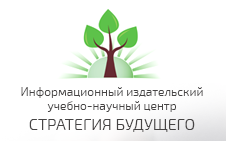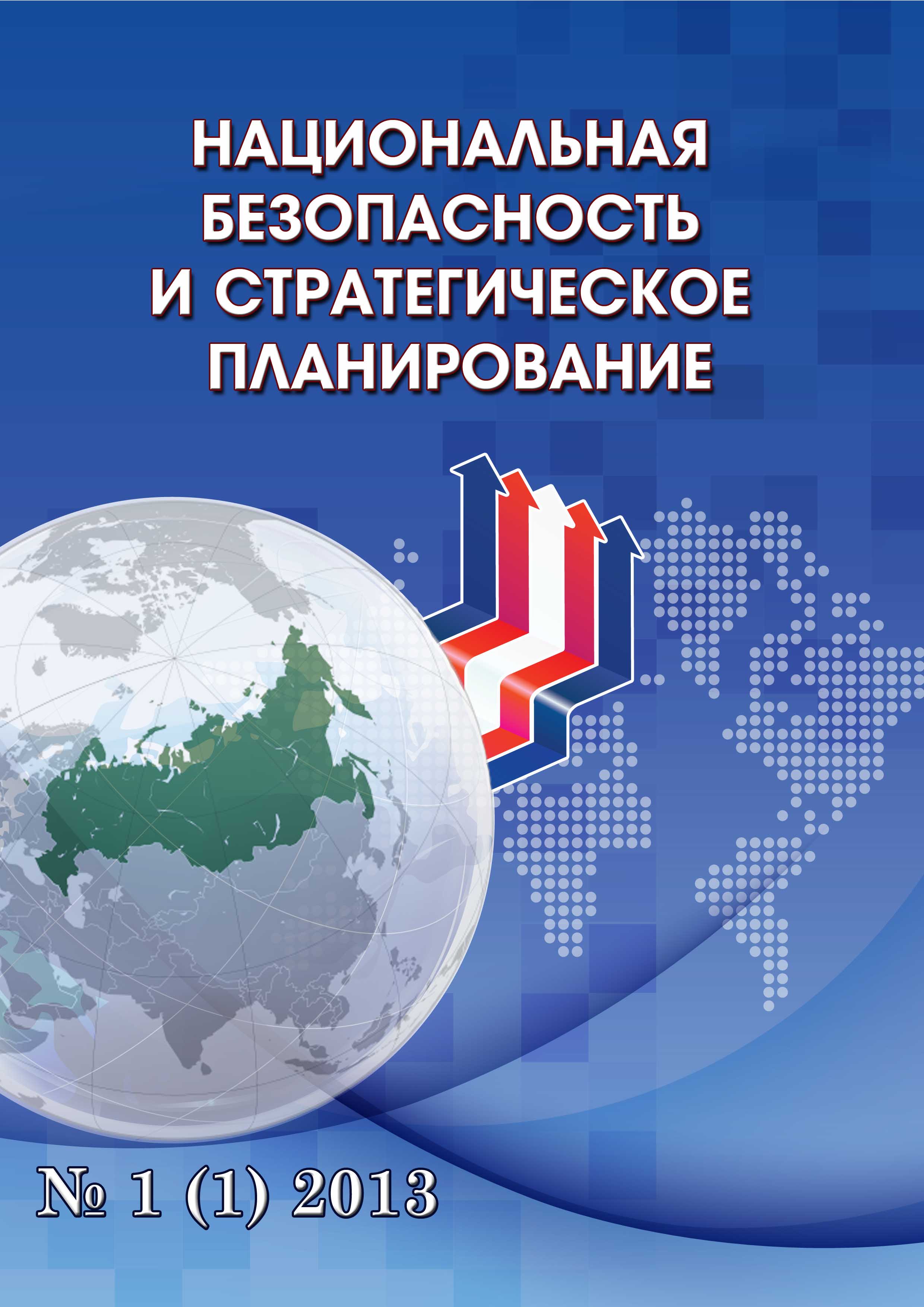Saint-Petersburg State University of Architecture and Construction (the Department of Law, the head)
Russian Federation
UDC 338.1
The article reveals the prerequisites and prospects for the sustainable development of the building industry in Russia as a whole and its constituent organizational systems. As a result of the study, a number of conclusions and assessments were obtained. As the analysis of sources has shown, the Concept and set of Sustainable Development Goals formed under the auspices of the UN are important prerequisites for the transition to sustainable development. There are alternative opinions of individual foreign and Russian scientists on the need to switch to a sustainable development model. This fact plays a positive role, because it stimulates the struggle of opinions and a deeper knowledge of the truth. When implementing elements of sustainable development into the activities of the organizational systems of the construction industry, the phenomenon of "merging" of its economic and social components is revealed. There is a double social responsibility of business - to its employees and to the end consumer of the products and services produced. This creates a special type of balance of the main components of sustainable development. The analysis of the Strategy for the Development of the Russian Construction Industry for the Period up to 2030, adopted in 2022, showed a focus on the gradual transition of the industry to a sustainable development model. At the same time, the forced development of the environmental component is not envisaged; reasonable proportions between the three components of sustainable development are maintained.
sustainable development, conception, building industry, state policy, development strategy, organizational systems, management, sovereignty
1. Stenogramma zasedaniya Soveta po strategicheskomu razvitiyu i nacional'nym proektam. 15.12.2022 g. [Elektronnyy resurs]. - Rezhim dostupa: http://prezident.org/tekst/stenogramma-zasedanija-soveta-po-strategicheskomu-razvitiyu-i-nacionalnym-proektam-15-12-2022.html (data obrascheniya 20.01.2023).
2. Ahmadeev D.R. Rossiyskaya ekonomika v kontekste perehoda k ustoychivomu razvitiyu: vozmozhnosti i riski // Teoreticheskaya ekonomika. - 2021. - № 6(78). - S. 38-51. DOIhttps://doi.org/10.52957/22213260_2021_6_38. - EDN HGVVKR
3. Grachev V.A. Uchenie V.I. Vernadskogo o noosfere kak osnova ustoychivogo razvitiya // Yug Rossii: ekologiya, razvitie. - 2015. - Tom 10. - № 3. - S. 16-23. - EDN VHTXIB
4. Konferenciya OON po okruzhayuschey srede i razvitiyu (Rio-de-Zhaneyro, iyun' 1992 goda). Kontyug V. A. Informacionnyy obzor. Novosibirsk. 1992. [Elektronnyy resurs]. - Rezhim dostupa: http://www.prometeus.nsc.ru/koptyug/ideas/unrio92/unrio92.pdf (data obrascheniya 22.01.2023).
5. Sianes A., Vega-Muñoz A., Tirado-Valencia P., Ariza-Montes A. Impact of the Sustainadle Development Goals on the academic research agenda. A scientometric analysis // PLoS ONE. - 2022. - No. 17(3). - DOI: https://doi.org/10.1371/journal.pone.0265409 EDN: https://elibrary.ru/HXVWGA
6. Bonnedahl K.J., Heikkurinen P., Paavola J. Strongly sustainable development goals: Overcoming distances constraining responsible action // Environmental Science & Policy. - 2022. - V. 129. - pp. 150-158. - DOI: https://doi.org/10.1016/j.envsci.2022.01.004
7. Arutyunov V.S. Koncepciya ustoychivogo razvitiya i real'nye vyzovy civilizacii // Vestnik rossiyskoy akademii nauk. - 2021. - Tom 91. - № 3. - S. 205-214. - DOI:https://doi.org/10.31857/S0869587321030026. - EDN AHSLMD
8. Ugol'nickiy G.A. Ierarhicheskoe upravlenie ustoychivym razvitiem. - M. Izd-vo fiziko-matematicheskoy literatury, 2010. - 336 s. EDN: https://elibrary.ru/QURKAL
9. Mamedov N.M. Koncepciya ustoychivogo razvitiya: global'noe videnie i rossiyskaya deystvitel'nost' // Ekopoezis: Ekogumanitarnye teoriya i praktika. - 2021. - T. 2. - № 1. - S. 6-12. - DOI:https://doi.org/10.24412/2713-1831-2021-1-6-12 EDN: https://elibrary.ru/LRKLRM
10. Dalirazar S., Sabzi Z. Barriers to sustainable development: Critical social factors influencing the sustainable building development based on Swedish experts' perspectives // Sustainable Development. - 2022. - V. 30. - No. 6. - pp. 1963-1974. - DOI: https://doi.org/10.1002/sd.2362
11. Silander D. The European Commission on Sustainable Development. A New Normative Power in Its Making? // Forum for Social Economics. - Routledge, 2022. - pp. 1-13. - DOI: https://doi.org/10.1080/07360932.2022.2032255
12. Kozioł-Nadolna K., Beyer K. Barriers to innovative activity in the sustainable development of public sector organizations // Procedia Computer Science. - 2021. - V. 192. - pp. 4376-4385. - DOI: https://doi.org/10.1016/j.procs.2021.09.214
13. Litvinenko V.S., Cvetkov P.S. i dr. Bar'ery realizacii vodorodnyh iniciativ v kontekste ustoychivogo razvitiya global'noy energetiki // Zapiski gornogo instituta. - 2020. - T. 244. - S. 428-438. - DOI:https://doi.org/10.31897/PMI.2020.4.5. - EDN JDOTFC
14. Mohamed A.I.A., Mohammed M.O., Baron M.N.B. Towards the definition and analysis of social component of sustainable development //International journal of Asian social science. - 2019. - V. 9. - No. 4. - pp. 318-326. - DOI: https://doi.org/10.18488/journal.1.2019.94.318.326
15. Kanaeva O.A. Social'nye imperativy ustoychivogo razvitiya // Vestnik SPbGU. Ekonomika. - 2018. - T. 34. - Vyp. 1. - S. 26-58. - DOI:https://doi.org/10.21638/11701/spbu05.2018.102 EDN: https://elibrary.ru/YVOOWY
16. Cai X., Wang W., Rao A., Rahim S., Zhao X. Regional Sustainable Development and Spatial Effects From the Perspective of Renewable Energy // Frontiers in Environmental Science. - 2022. - V. 10. - pp. 166. - DOI: https://doi.org/10.3389/fenvs.2022.859523
17. Semyachkov K.A. Modelirovanie ustoychivogo razvitiya territorii na osnove koncepcii umnogo goroda // Voprosy innovacionnoy ekonomiki. - 2021. - Tom 11. - № 3. - S. 1015-1034. - DOI:https://doi.org/10.18334/vinec.11.3.113448. - EDN VQSDSG
18. Kuznecov A.P. Ustoychivoe razvitie regiona: ekologo-ekonomicheskie aspekty. Monografiya. - Vologda: ISERT RAN, 2015. - 136 s. EDN: https://elibrary.ru/UKWVYH
19. Golubeva A. Indikativnyy i kompleksnyy podhody k ocenke ustoychivogo razvitiya regiona na primere goroda Sankt-Peterburga // Kreativnaya ekonomika. - 2022. - Tom 16. - № 2. - S. 757-770. - DOI:https://doi.org/10.18334/ce.16.2.114237 EDN: https://elibrary.ru/NRSMIR
20. Peng Y., Zhang H. Global Sustainable Development Evaluation Methods With Multiple-Dimensional // Sustainable Development Index. Front. Environ. - 2022. - V.10. Sci. 10:957095. - DOI:https://doi.org/10.3389/fenvs.2022.957095
21. Backes J. G., Traverso M. Life cycle sustainability assessment as a metrics towards SDGs agenda 2030 // Current Opinion in Green and Sustainable Chemistry. - 2022. - V. 38. - DOI: https://doi.org/10.1016/j.cogsc.2022.100683
22. Hamad S., Lai F.W., Shad M.K., Khatib S.F.A., Ali S.E.A. Assessing the implementation of sustainable development goals: does integrated reporting matter? // Sustainability Accounting, Management and Policy Journal. - 2023. - V. 14. - No. 1. - pp. 49-74. - DOI: https://doi.org/10.1108/SAMPJ-01-2022-0029
23. Zhang Y., Wang Y., Wei J. Evaluation of Sustainable Development of an Agricultural Economy Based on the DPSIR Model // Journal of Sensors. - 2022. - V. 2022. - DOI: https://doi.org/10.1155/2022/2591275
24. Horvath S. M. et al. Handling a complex agenda: A review and assessment of methods to analyse SDG entity interactions // Environmental Science & Policy. - 2022. - V. 131. - pp. 160-176. - DOI: https://doi.org/10.1016/j.envsci.2022.01.021
25. Czupich M, Łapińska J, Bartoš V. Environmental Sustainability Assessment of the European Union's Capital Cities. // Int J Environ Res Public Health. - 2022. v. 19. - No. 7. - p.4327. - DOI: https://doi.org/10.3390/ijerph19074327 EDN: https://elibrary.ru/ITWDCL
26. How has the EU progressed towards the SDGs? Eurostat, URL: https://ec.europa.eu/eurostat/web/products-eurostat-news/-/wdn-20220523-1(data obrascheniya 26.01.2023).
27. Struktura komponentov proizvodstva VVP. [Elektronnyy resurs]. - Rezhim dostupa: https://sudact.ru/law/prognoz-sotsialno-ekonomicheskogo-razvitiia-rossiiskoi-federatsii-na-2021/prognoz/struktura-ekonomicheskogo-rosta/vvp-po-schetu-proizvodstva/tablitsa-6/ (data obrascheniya 26.01.2023).
28. Ebolor A., Agarwal N., Brem A. Sustainable development in the construction industry: The role of frugal innovation // Journal of Cleaner Production. - 2022. - V. 380. - No. 2. - DOI: https://doi.org/10.1016/j.jclepro.2022.134922
29. Kinnunen J., Saunila M., Ukko J., Rantanen H. Strategic sustainability in the construction industry: Impacts on sustainability performance and brand // Journal of Cleaner Production. - 2022. - V. 368. - DOI: https://doi.org/10.1016/j.jclepro.2022.133063
30. Rezolyuciya General'noy Assamblei OON ot 25.09.2015 g. «Preobrazovanie nashego mira: Povestka dnya v oblasti ustoychivogo razvitiya na period do 2030 goda». [Elektronnyy resurs]. - Rezhim dostupa: https://unctad.org/system/files/official-document/ares70d1_ru.pdf (data obrascheniya 29.01.2023).
31. Sovremennaya povestka ustoychivogo razvitiya rossiyskih gorodov. Reyting ustoychivogo razvitiya gorodov RF za 2018 god. [Elektronnyy resurs]. - Rezhim dostupa: https://agencysgm.com/projects/Broshyura2018.pdf (data obrascheniya 29.01.2023).
32. Balalov V.V., Barabanova T.A. Ocenka zhiznennogo cikla intellektual'nyh ustoychivyh gorodov // Stroitel'stvo, nauka i obrazovanie. - 2022. - T. 12. - Vyp. 2. - DOI:https://doi.org/10.22227/2305-5502.2022.2.6 EDN: https://elibrary.ru/SDGWHF
33. Gorodskaya sreda sovremennogo goroda dlya ustoychivogo razvitiya. SPb. 2020. [Elektronnyy resurs]. - Rezhim dostupa: https://www.gov.spb.ru/static/writable/ckeditor/uploads/2021/02/03/05/Gorodskaya_sreda_sovremennogo_goroda_dlya_ustoychivogo_razvitiya_KPPOS_2020_compressed.pdf (data obrascheniya 29.01.2023).
34. Kemaykin N.K., Pavlenkov M.N. Napravleniya razvitiya ZhKH Rossii // Vestnik Tomskogo gosudarstvennogo universiteta. Ekonomika. - 2020. - № 51. - S. 21-34. - DOI:https://doi.org/10.17223/19988648/51/2. - EDN CICXUS
35. Ustoychivoe razvitie transporta v gorodah Rossii: opyt i aktual'nye zadachi / Yu. M. Grishaeva, O. Yu. Matanceva, I. V. Spirin [i dr.] // Yug Rossii: ekologiya, razvitie. - 2018. - T. 13, № 4. - S. 24-46. - DOI:https://doi.org/10.18470/1992-1098-2018-4-24-46. - EDN YWBUWL
36. Nazhimov I.P. Obespechenie ustoychivogo razvitiya predpriyatiy promyshlennosti stroitel'nyh materialov // Byulleten' nauki i praktiki. - 2020. - T. 6. - № 5. - S. 362-366. - DOI:https://doi.org/10.33619/2414-2948/54/46. - EDN JUJFRO
37. Gerike R., Bogenberger K., Nagel K., Wagenknecht S., Ziemke D., Waller T. From Sustainable Urban Transport to Responsible Urban Mobility: Function, Form, Fairness, Forever // In book: Reference Module in Earth Systems and Environmental Sciences, 2022. - DOI: http://dx.doi.org/10.1016/B978-0-323-90386-8.00022-X
38. Rey-Moreno M, Periáñez-Cristóbal R, Calvo-Mora A. Reflections on Sustainable Urban Mobility, Mobility as a Service (MaaS) and Adoption Models // International journal of environmental research and public health. - 2022. - V. 20. - No. 1. - p. 274. - DOI:https://doi.org/10.3390/ijerph20010274
39. Roman M. Sustainable Transport: A State-of-the-Art Literature Review // Energies. - 2022. - V. 15. - No. 23. - DOI: https://doi.org/10.3390/en15238997
40. Lindkvist H., Melander L. How sustainable are urban transport services? A comparison of MaaS and UCC // Research in Transportation Business & Management. - 2022. - V.43. - DOI: https://doi.org/10.1016/j.rtbm.2022.100829
41. Curtis C., Low N. Institutional Barriers to Sustainable Transport. - Routledge, 2016. URL: https://www.routledge.com/Institutional-Barriers-to-Sustainable-Transport/Curtis-Low/p/book/9781138255333
42. Anastasiadou K., Gavanas N., Pyrgidis C., Pitsiava-Latinopoulou M. Identifying and Prioritizing sustainable urban mobility barriers through a modified delphi-AHP approach // Sustainability. - 2021. - V. 13. - No. 18. - DOI: https://doi.org/10.3390/su131810386








